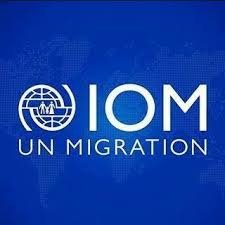Project “Addressing Environmental Migration Resulting from Coastal Change in Timor-Leste”
1. Evaluation Context
The International Organization for Migration (IOM) is part of the United Nations System and is the leading intergovernmental organization in the field of migration. With 175 member states and offices in 171 countries, IOM is dedicated to promoting humane and orderly migration. The organization collaborates with various partners to improve the resilience of vulnerable migrants. IOM endeavors to reduce risks and impacts of climate change, environmental degradation, conflict, and instability for communities affected by or at risk of displacement.
Timor-Leste is particularly vulnerable to climatic impacts on coastal areas, with significant populations residing in areas already impacted by coastal erosion and sea-level rise. This has led to migration out of these areas. The project “Addressing Environmental Migration Resulting from Coastal Change in Timor-Leste” aimed to enhance knowledge on coastal change and its impacts on coastal communities, with a focus on developing responses to mobility resulting from coastal change.
Objective: To contribute to building the Government of Timor-Leste's capacity to address coastal communities' vulnerabilities and adaptive capacities to climate change.
Outcomes and Outputs
Outcome 1: Government stakeholders utilize improved evidence on coastal change and migration for national climate change programming.
- Output 1.1: Desk review of existing evidence and data on coastal change and migration.
- Output 1.2: Remote sensing-based national shoreline assessment.
- Output 1.3: Capacity building for stakeholders to collect and manage mobility and coastal change data.
Outcome 2: At-risk communities implement gender-inclusive community-based planning (CBP) initiatives for environmental migration preparedness.
- Output 2.1: Development and implementation of CBP measures in target communities.
2. Evaluation Purpose and Objective
The ex-post external evaluation, conducted from 08 August 2024 to 09 October 2024, aims for accountability and learning, generating useful and evidence-based information for UN Country Offices, Regional Offices, and government partners. The objectives include:
- Assessing overall performance towards project’s expected results.
- Identifying success factors and barriers in project implementation.
- Evaluating the success regarding government ownership and stakeholder engagement.
- Documenting lessons learned and best practices.
- Providing actionable recommendations for future programming.
3. Evaluation Scope
This evaluation will cover the 24-month project duration (06 October 2020 - 05 October 2022) and will assess the mainstreaming of gender and rights-based approaches, especially at the community level.
4. Evaluation Criteria
The evaluation will address the OECD/DAC evaluation criteria (relevance, efficiency, effectiveness, coherence, impact, and sustainability). It will measure success particularly regarding government ownership and stakeholder engagement, using the IOMDF scoring matrix.
Key Questions
- Relevance: Alignment with national and regional strategies, beneficiary needs, and donor priorities; adaptation to changing external conditions; quality of intervention logic design.
- Efficiency: Cost-effectiveness, management and implementation efficiency, monitoring and reporting procedures.
- Effectiveness: Achievement of outcomes and objectives, beneficiary reach and satisfaction.
- Coherence: Alignment with other IOM and external projects/activities.
- Impact: Changes in social/economic/political/environmental circumstances; improvement in evidence-based programming; attitudinal changes.
- Sustainability: Continuation of benefits post-project; integration into local structures; partner capacity for continued delivery.
5. Evaluation Questions
CriteriaQuestionsRelevanceWas the project aligned with national and regional strategies, beneficiary needs, and donor priorities? How well did the project adapt to changing conditions?EfficiencyHow cost-effective was the project? How efficient was the management and implementation?EffectivenessTo what extent did the project achieve its outcomes? Were the target beneficiaries reached and satisfied?CoherenceHow well did the project align with other IOM and external projects?ImpactWhat changes did the intervention bring? Did it improve government stakeholders' use of evidence-based programming?SustainabilityAre there structures in place to ensure continuation of benefits? Is the project supported by local institutions and well-integrated into local structures?Gender and Human Rights MainstreamingDid the CBP respond to gender needs? How were human rights and gender approaches integrated into the project?
6. Evaluation Methodology
The evaluation will use a mixed-methods approach, employing both qualitative and quantitative data sources. Methods will include desk reviews, surveys, FGDs, and key informant interviews. The evaluator should propose how gender and human rights will be mainstreamed in their approach.
7. Ethics, Norms, and Standards for Evaluation
IOM abides by the Norms and Standards of UNEG and expects compliance with UNEG Ethical Guidelines for Evaluation and Codes of Conduct for Evaluation in the UN System. The evaluation must respect IOM Data Protection Principles.
8. Evaluation Deliverables
The evaluator will provide the following:
- Inception report
- Draft evaluation report
- Final evaluation report
- Evaluation brief
- Presentation of evaluation findings
- Partially completed Management Response Matrix
9. Specifications of Roles
The evaluator is responsible for data collection, analysis, and timely delivery of quality deliverables. The IOM Evaluation Manager will review deliverables and facilitate internal coordination.
10. Time Schedule
The evaluation will be conducted from 08 August 2024 to 09 October 2024. All deliverables must be submitted by the specified dates.
*Travel expense claims must be submitted by 30th September 2024.
11. Evaluation Requirements
Education and Experience
- 7-10 years of experience in project/program evaluations.
- Master’s degree or equivalent in public health, social science, public policy, development studies, or related fields.
- Experience with quantitative and qualitative research methods and analytical tools.
Competences
- Excellent analytical, oral, and written communication skills in English (Tetum desirable).
- Experience with peer-to-peer data collection.
- Ability to create graphic visuals.
- Technical and analytical report writing experience.
- Ability to work in complex institutional environments.
- Sensitivity to cultural, gender, religion, race, nationality, and age diversity.
- Ability to work independently and meet deadlines.
12. Evaluation Budget
Payment will be deliverable-based:
- Inception Report: 40%
- First Draft Evaluation Report: 40%
- Final Evaluation Report, Evaluation Brief, and Management Response Matrix: 20%
All-inclusive costs must be included in the financial proposal.
Submission of Application
Applicants should send their application to [email protected] by midnight (IST) 23 July 2024. The application should include:
- Updated CV with a sample of similar assignments.
- Technical Proposal (max 5 pages).
- Financial Proposal with a detailed cost estimation.
ToR: https://www.iom.int/sites/g/files/tmzbdl486/files/country/timor-leste/ex-post-external-evaluation-of-the-project-nc-0050.pdf
